Thermaltake Toughpower DPS G RGB 1500W PSU Review
Why you can trust Tom's Hardware
Transient Response Tests
Advanced Transient Response Tests
For details on our transient response testing, please click here.
Ιn these tests, we monitor the PSU's response in two different scenarios. First, a transient load (10 A at +12V, 5 A at 5V, 5 A at 3.3V and 0.5 A at 5VSB) is applied for 200 ms while the TPG-1500D-T works at 20 percent load. In the second scenario, the PSU is hit by the same transient load while operating at 50 percent load. In both tests, we use our oscilloscope to measure the voltage drops caused by the transient load. The voltages should remain within the ATX specification's regulation limits.
These tests are crucial because they simulate the transient loads a PSU is likely to handle (such as booting a RAID array or an instant 100 percent load of CPU/GPUs). We call these tests "Advanced Transient Response Tests," and they are designed to be very tough to master, especially for power supplies with a capacity of less than 500 W.
Advanced Transient Response at 20 Percent
| Voltage | Before | After | Change | Pass/Fail |
|---|---|---|---|---|
| 12V | 12.043V | 11.957V | 0.71% | Pass |
| 5V | 5.013V | 4.914V | 1.97% | Pass |
| 3.3V | 3.340V | 3.165V | 5.24% | Pass |
| 5VSB | 4.994V | 4.922V | 1.44% | Pass |
Advanced Transient Response at 50 Percent
| Voltage | Before | After | Change | Pass/Fail |
|---|---|---|---|---|
| 12V | 11.992V | 11.930V | 0.52% | Pass |
| 5V | 4.984V | 4.881V | 2.07% | Pass |
| 3.3V | 3.313V | 3.141V | 5.19% | Pass |
| 5VSB | 4.957V | 4.883V | 1.49% | Pass |
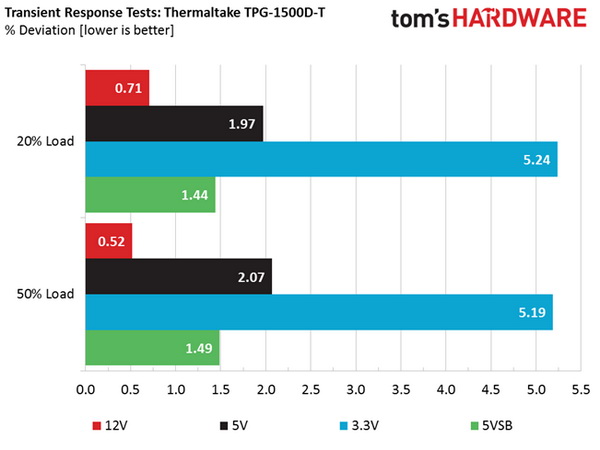
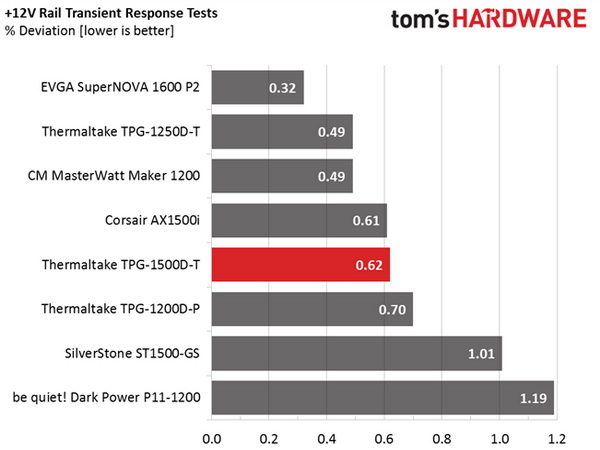
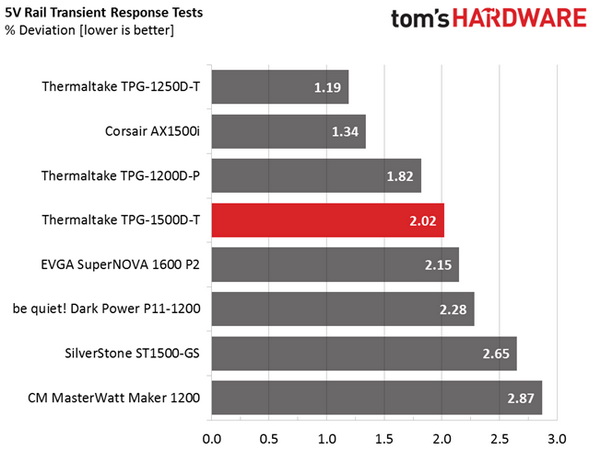
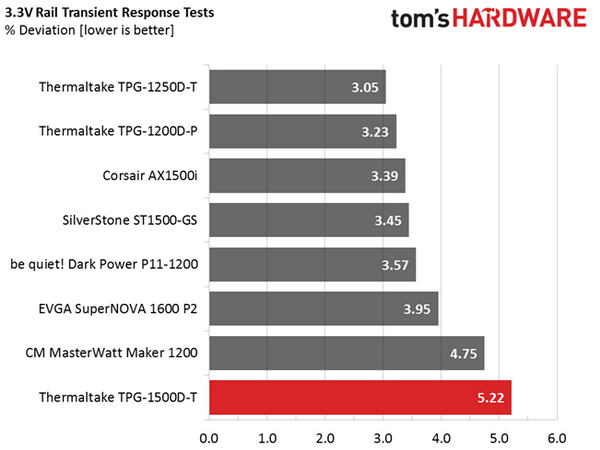
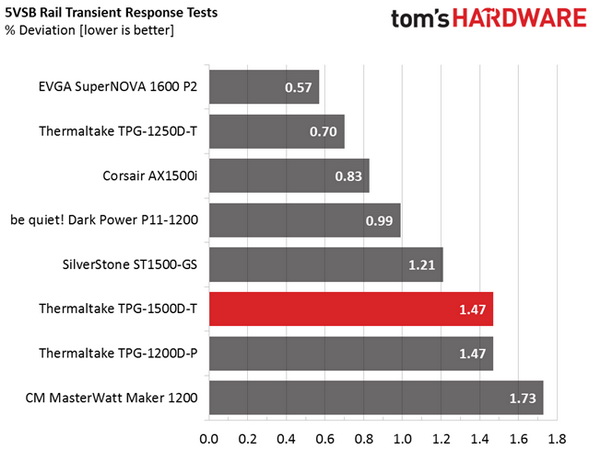
The +12V rail demonstrates small deviations, which comes naturally for such a strong PSU, while the deviations on the 5V and 5VSB rails are low as well. On the contrary, the 3.3V rail doesn't respond well in transient loads, registering significant deviations and very high voltage drops.
Here are the oscilloscope screenshots we took during Advanced Transient Response Testing:
Transient Response At 20 Percent Load
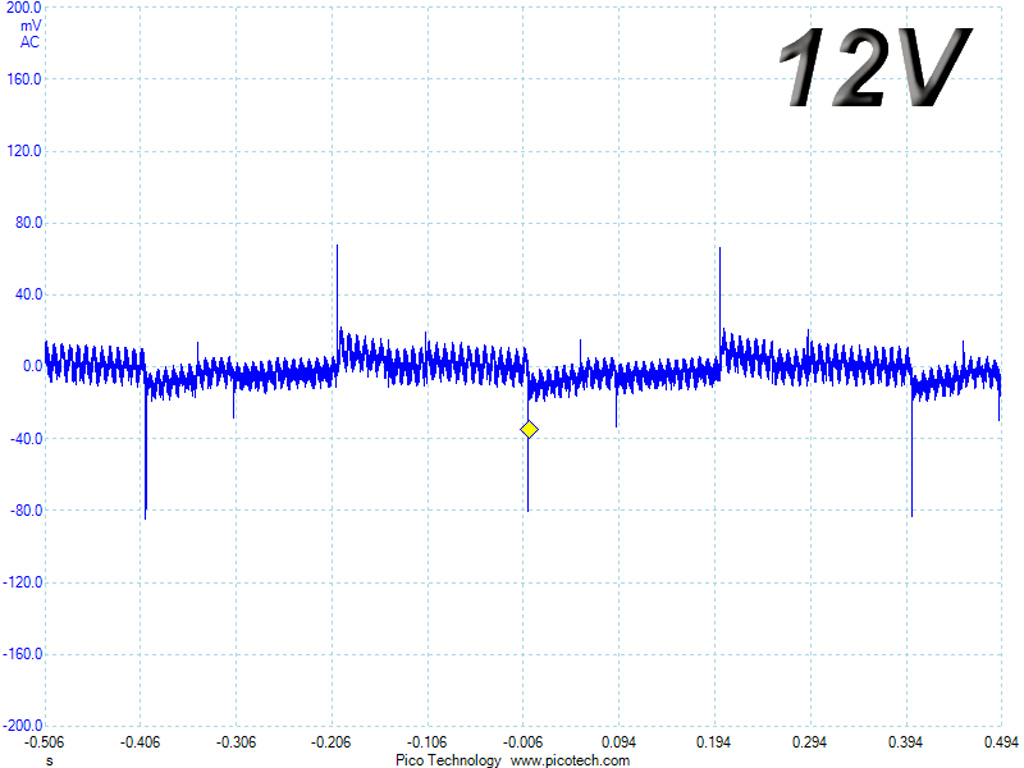
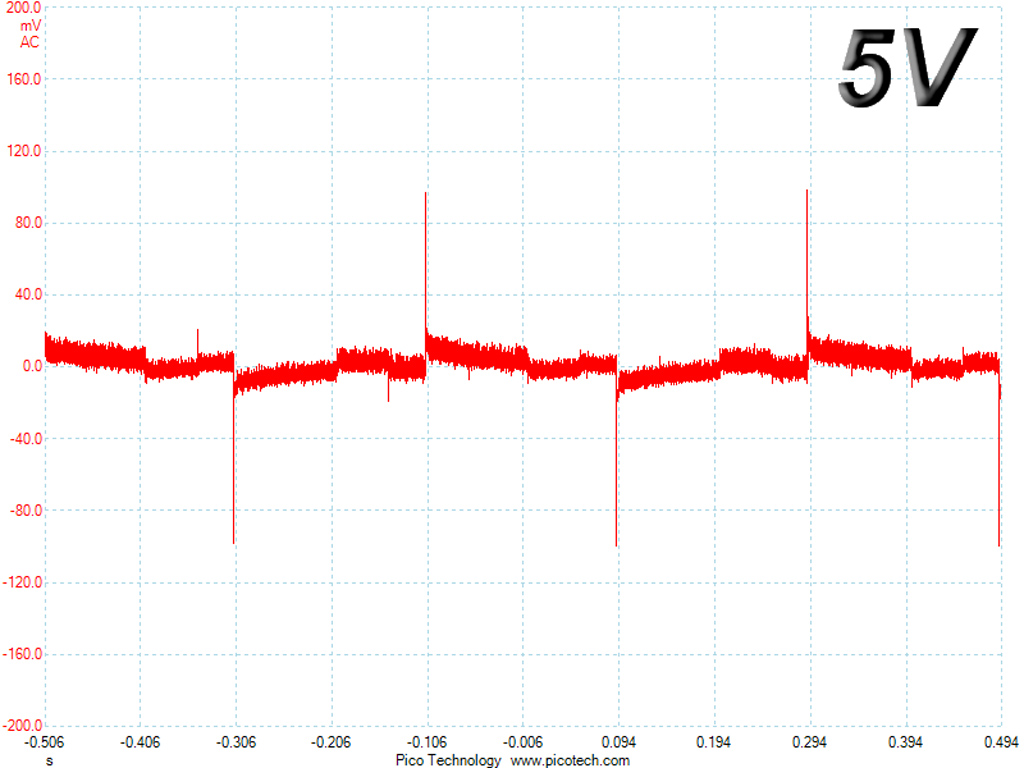
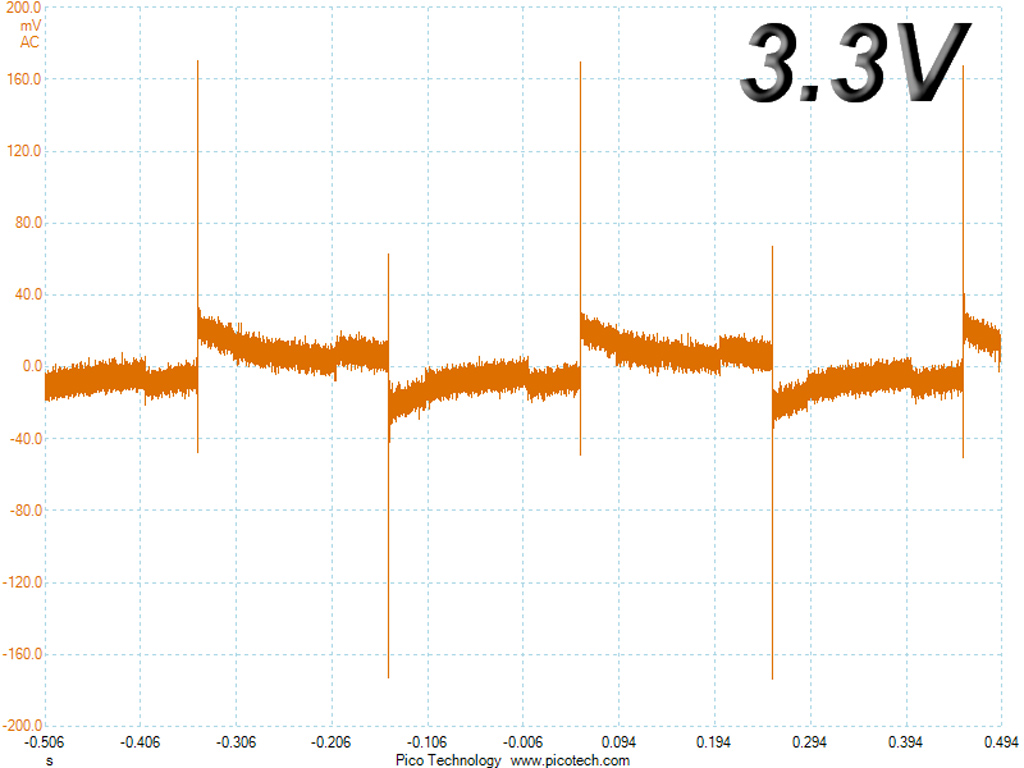
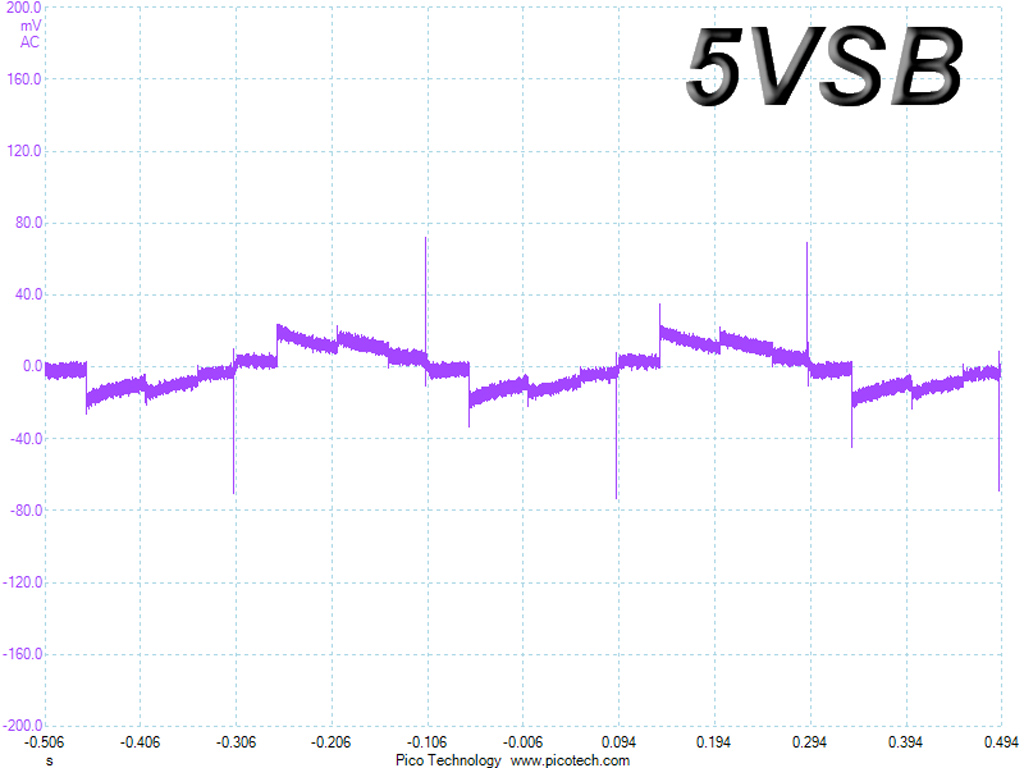
Transient Response At 50 Percent Load
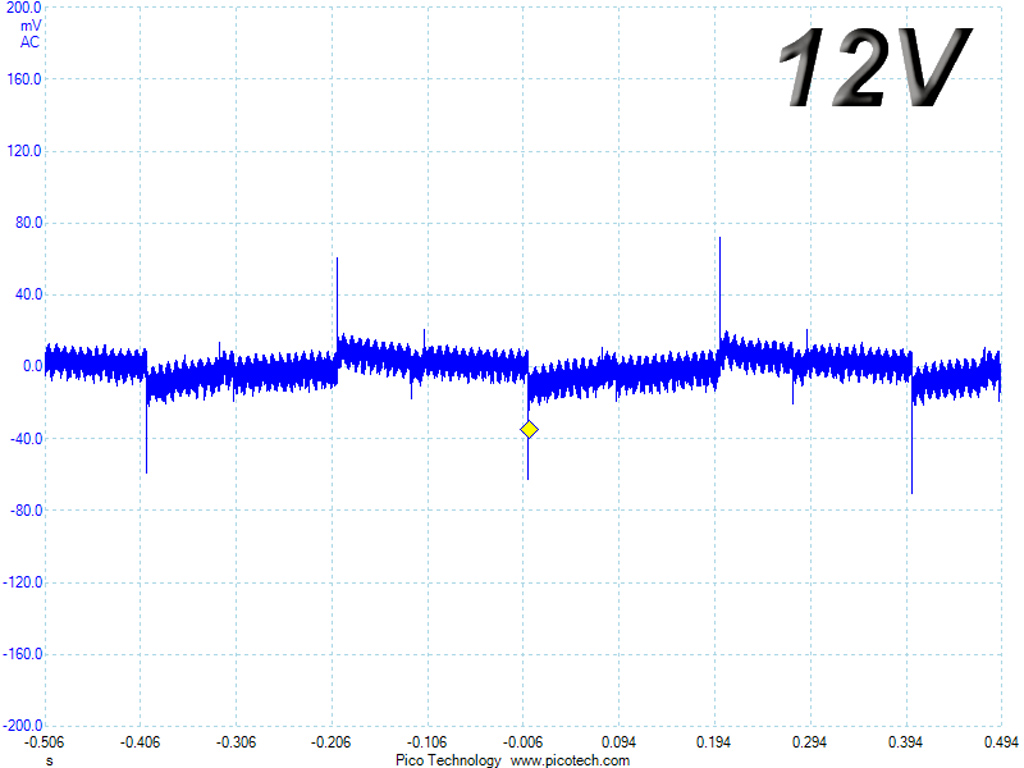
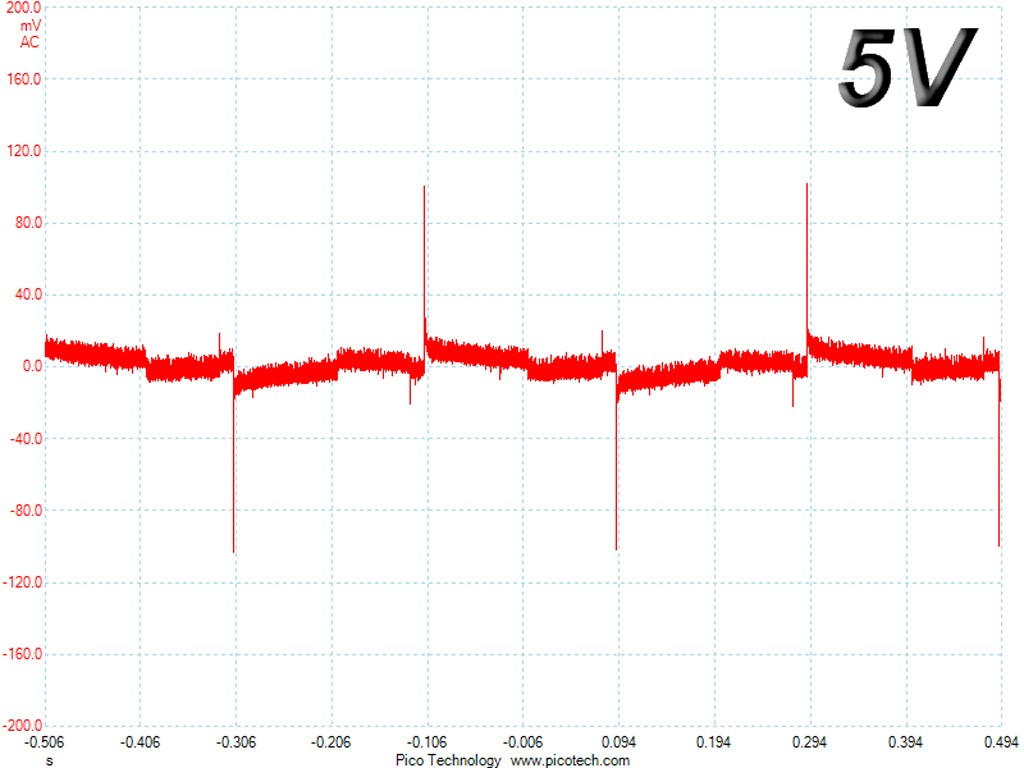
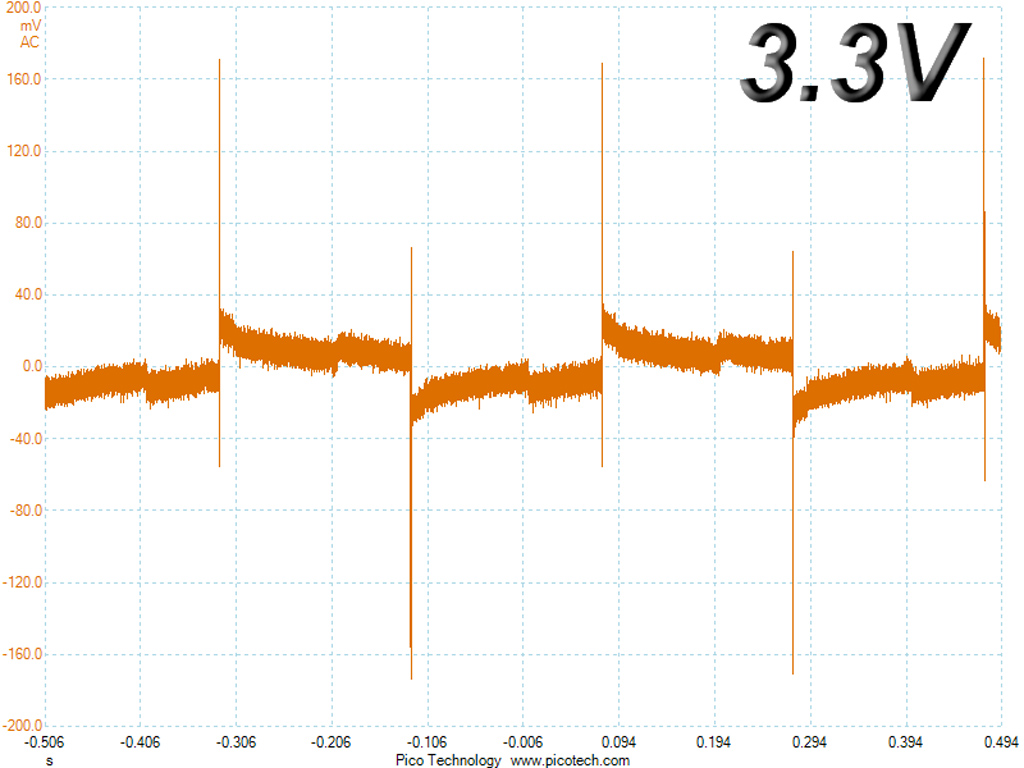
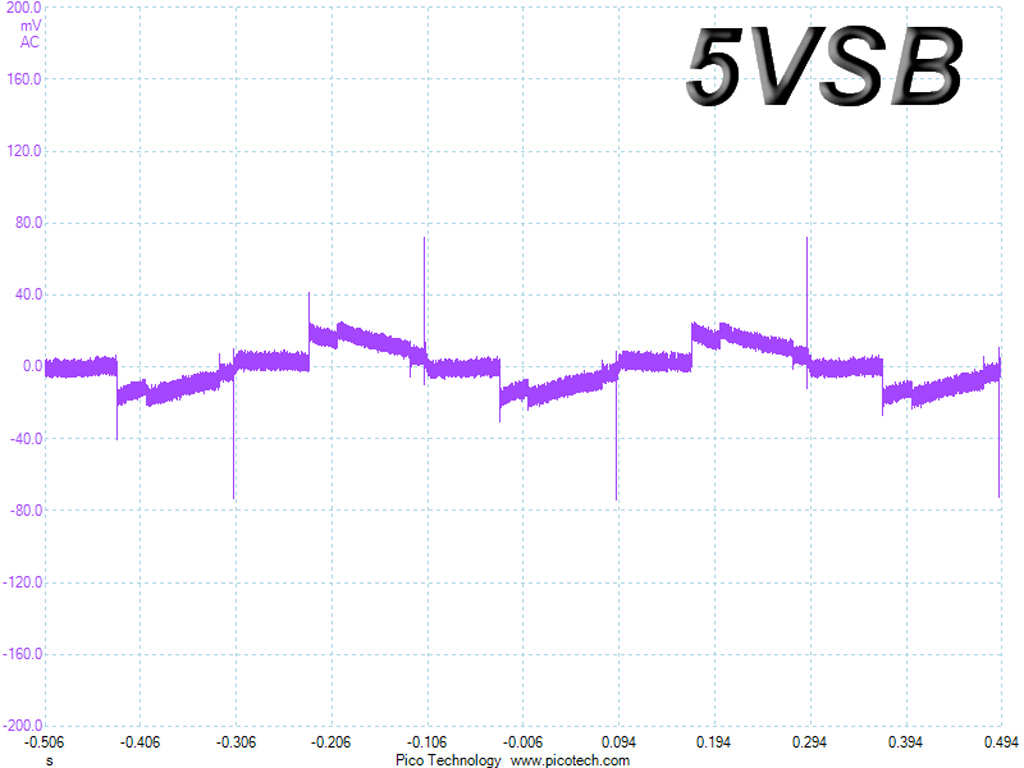
Turn-On Transient Tests
In the next set of tests, we measured the TPG-1500D-T's response in simpler transient load scenarios—during its power-on phase.
For the first measurement, we turned off the PSU, dialed in the maximum current the 5VSB could output and switched the TPG-1500D-T on. In the second test, we dialed the maximum load the +12V could handle and started the PSU while it was in standby mode. In the last test, while the TPG-1500D-T was completely switched off (we cut off the power or switched it off by flipping its on/off switch), we dialed the maximum load the +12V rail could handle before switching the PSU back on from the loader and restoring power. The ATX specification states that recorded spikes on all rails should not exceed 10 percent of their nominal values (+10 percent for 12 V is 13.2 V, and 5.5 V for 5 V).
Get Tom's Hardware's best news and in-depth reviews, straight to your inbox.
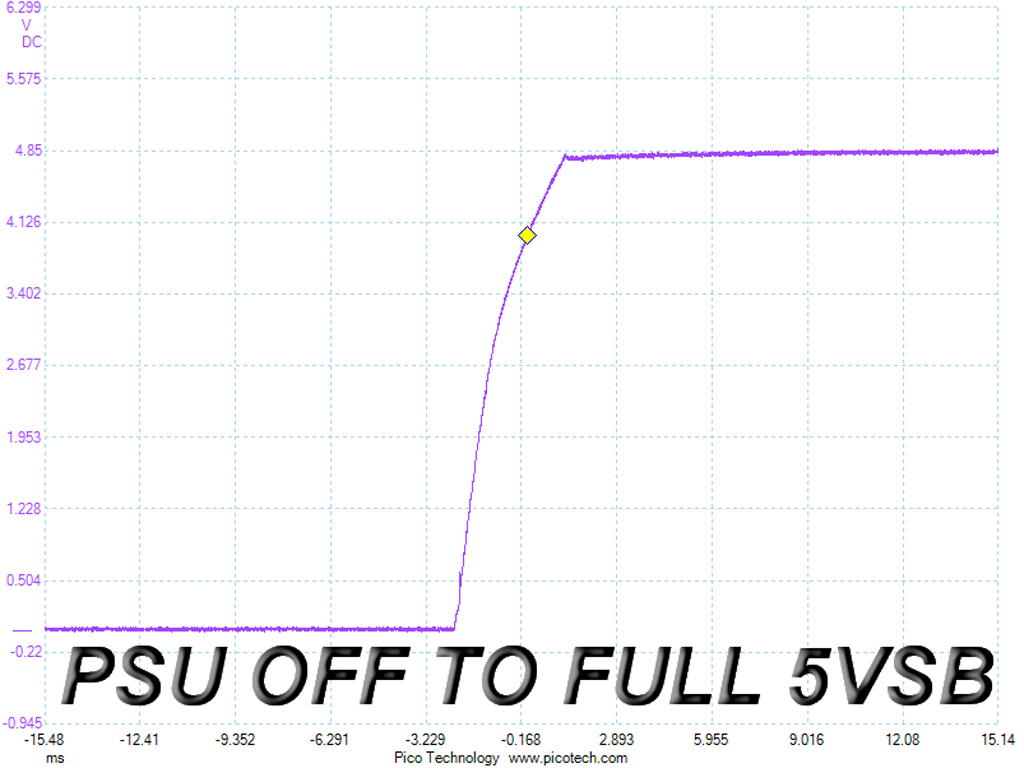
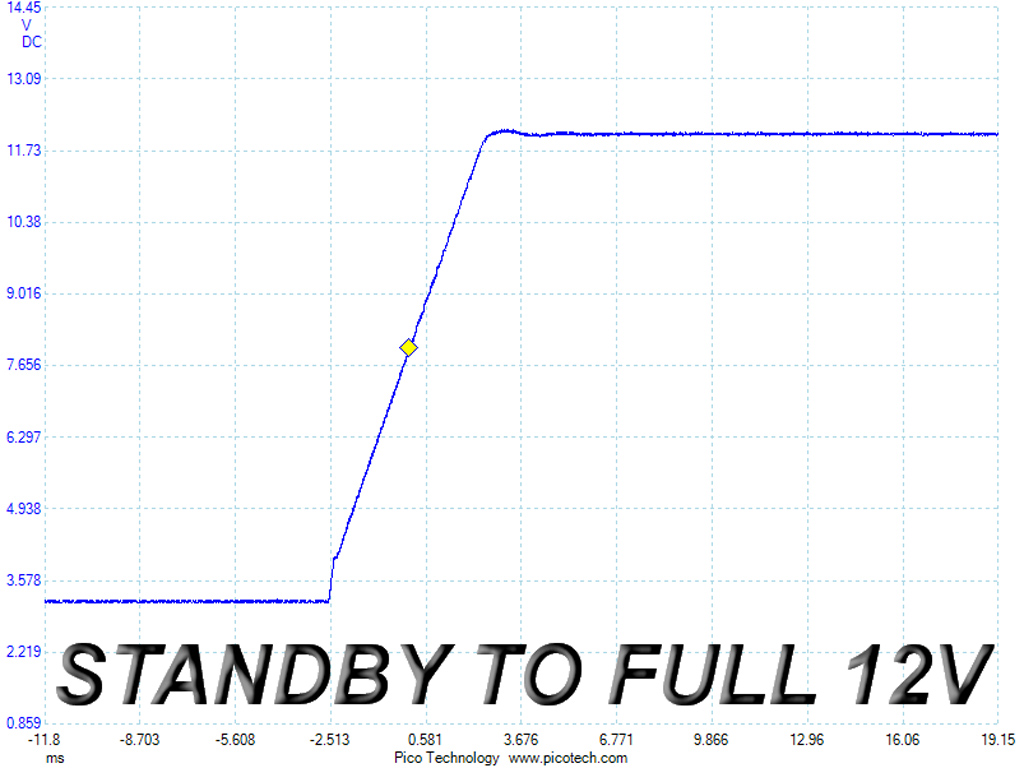
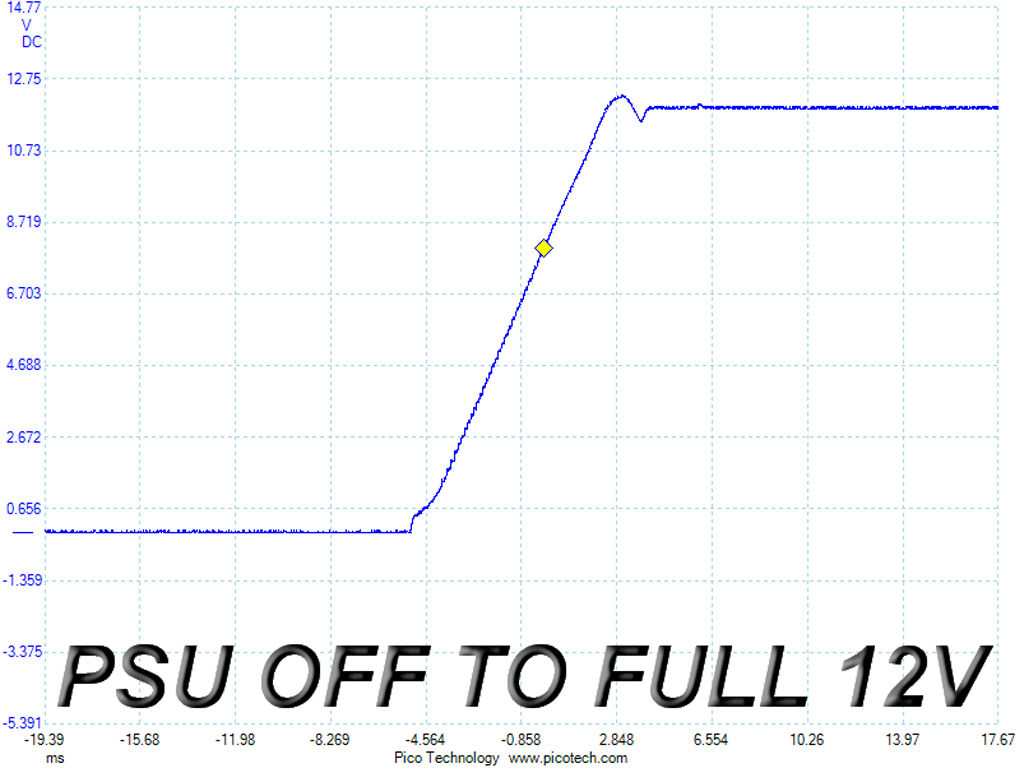
The 5VSB test results are fine, and the same goes for the second test. Only in the last test we do notice a small wave before the rails settle down, though this is nothing to worry about. Overall, we observe very good performance.
Current page: Transient Response Tests
Prev Page Cross-Load Tests And Infrared Images Next Page Ripple Measurements
Aris Mpitziopoulos is a contributing editor at Tom's Hardware, covering PSUs.
-
spat55 So basically a poor performing PSU at this price point and the only good thing is a RGB fan I won't see because my PSU is always face down and preferably under a PSU cover, okay got it.Reply -
g-unit1111 What's the point of having an RGB ring on a bottom mounted PSU where nobody will see the fan anyways? :??:Reply
Also those cables - the word "eyesore" comes to mind! I would be replacing those with some custom ones ASAP! :ouch: -
spat55 Reply18628558 said:What's the point of having an RGB ring on a bottom mounted PSU where nobody will see the fan anyways? :??:
Also those cables - the word "eyesore" comes to mind! I would be replacing those with some custom ones ASAP! :ouch:
Yeah it's just a crap unit which is hoping the kids orgasm over those RGB lighting, it's doing my head in but I'm sure it'll soon become mainstream then die. -
powernod Extremely dissapointed by Thermaltake.Reply
Only at the TPG-1250D-T they used the new & excellent CST platform by CWT.
For all the other wattage models so far, ( 850 & 1500watt ) they used mediocre platforms by Enhance.
I had high expectations for Tt's new line of PSUs, but they were proven futile. -
Virtual_Singularity Thanks for another thorough, excellent, psu review, great job Aris. Disappointed by TT, as well. That is one flawed, less than mediocre (esp for the price) unit, OEM'd to Enhance by another predictable 3rd party company. Some pretty lights on the fan and it's 1600 watt helm of their "flagship" series moniker is supposed to justify that $430 pricetag? Fails to meet minimum atx specs in several areas, hold up time for such an expensive unit is also unacceptable. Similar to the MasterWatt Maker, it can't hope to compete with similar units from their competitors, which are lower in price, better in efficiency and overall specs.Reply -
Nuckles_56 The 12V CL1 was certainly one of the more interesting waveforms I've seen in a while. But overall I'm pretty disappointed in Thermaltake for producing such a over priced under performing PSUReply -
Br1414 Typo? 16 amps is the max legal load on a 20 amp 120v plug, thus option A apparently. Option B appears to be the old wall A/C style 20 amp 240 volt plug. Both a t slot styles. So maybe you rig something, but more or less you need an electrician just to use this thing safely! I guess you got the money...Reply -
Valantar Individually sleeved cables in the traditional "ketchup and mustard" colours? Wow, that made me laugh. Out loud. Might be suitable to some kind of early 2000s retro theme build?Reply
Also, I love the pixelated 8-bit-ish thing you've got going on with the ripple graphs on page 9. Perhaps
Otherwise, this was pretty much as expected. A useless product (the world does not need more 1000W+ PSUs), with useless features (RGB in a place where it'll be invisible in 90+% of modern cases), at a useless price point. That it performs badly as well just adds icing to the turd.